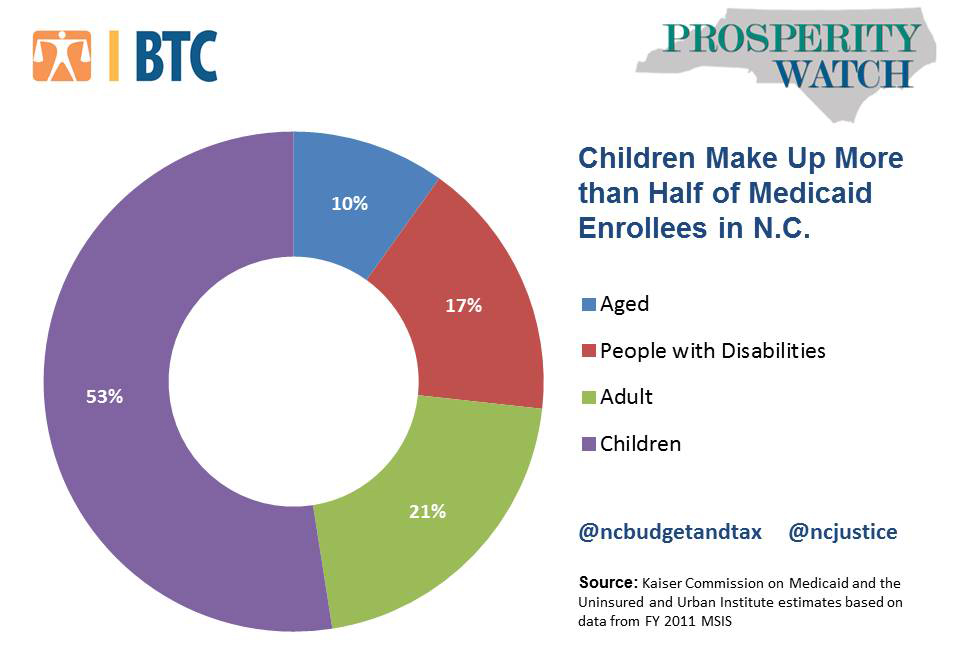Prosperity Watch (Issue 70, No. 3)
Feb. 20, 2017
Medicaid is a federal-state program that provides access to health care through the private sector by insuring that low-income families can access coverage and services essential to their well-being. In the coming months, beyond state-level discussion of Medicaid expansion, a federal effort to retreat from historic commitments to the states will be debated. The proposals being considered would undermine the goal of ensuring the health and well-being of the nation’s most vulnerable residents.
Medicaid serves nearly 2 million North Carolinians. Among those eligible for health care services are children, people with disabilities and older North Carolinians, as well as very low-income adults. A look at the most recent data available on enrollment shows that more than half (53 percent) of those served by Medicaid in the state are children but that the program also reaches many of the state’s most vulnerable residents who absent Medicaid would not be able to receive health care.
In combination with the Children’s Health Insurance Program (CHIP), Medicaid ensures that North Carolina covers 93 percent of children with health insurance, providing some guarantee of preventive care and access to Early and Periodic Diagnostic Screening and Treatment. Both of these serve to contain costs and support the healthier development and well-being of children in the state. Research into the long-term benefits of Medicaid coverage points to improved educational outcomes for children, reduced emergency health care visits and improved lifetime earnings. Proposals at the federal level to alter the federal-state partnership threaten such significant outcomes for children as well as families and the broader economy.
Prominent among the ideas being considered is a per-capita cap proposal that would limit the dollars that the federal government provides to states to a set per-person amount. As is clear from the data on the average Medicaid spending per enrollee group, the range of costs in covering residents can be significant: Medicaid spending per child beneficiary averages $2,355, while for an individual with disabilities that figure is $15,060. These averages, moreover, don’t provide insight into the true cost of meeting the individualized medical needs of each enrollee, a critical component of today’s Medicaid program and one that allows the program to achieve significant returns for the broader economy. Under a per-capita cap proposal, it is highly likely that certain health care services would have to be cut, eligibility for services would be reduced or provider payments would further decrease.
The rationing of health care will decrease the potential to generate savings for the health care industry and states while also reducing the long-term economic benefits of improving the health and well-being of all residents.
 Justice Circle
Justice Circle 
